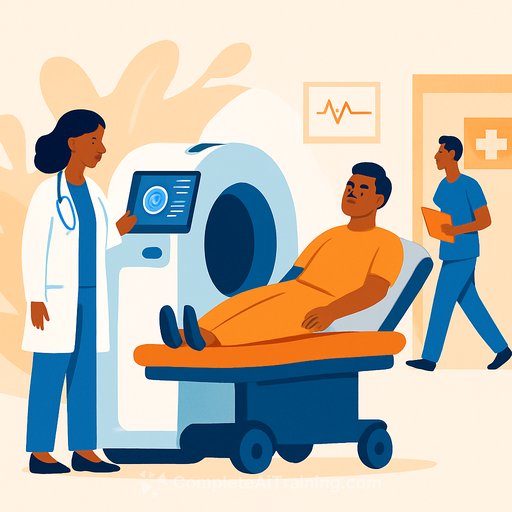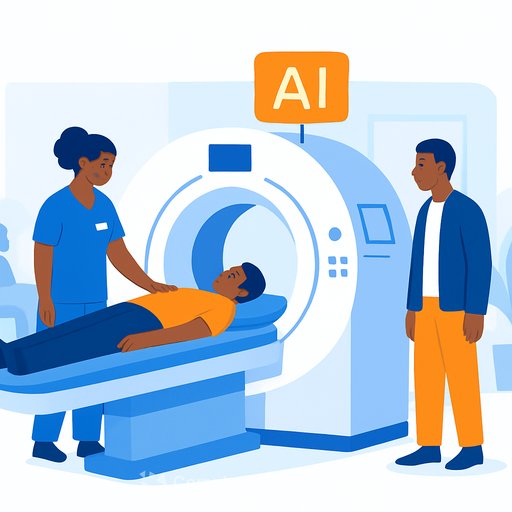First Patients Enrolled in Study on AI-Powered Portable MRI Use in Emergency Rooms
Hyperfine, Inc. has begun enrolling patients in the PRIME (Portable Rapid Imaging for Medical Emergencies) study, focused on evaluating AI-powered portable MRI technology in emergency department (ED) settings. This real-world study will explore how portable MRI can affect clinical decisions and operational flow across various patient types presenting with brain-related emergencies.
Building on Previous Research
The PRIME study, conducted at Yale School of Medicine, expands on findings from the earlier ACTION PMR study, which showed the value of AI-powered portable MRI for stroke diagnosis and management in emergency departments. PRIME broadens the patient population to include a diverse range of brain emergency cases, assessing the technology’s ability to improve triage efficiency and effectiveness.
Next-Generation Technology in Use
Unlike its predecessor, PRIME utilizes the newly released next-generation Swoop system, enhanced by Optive AI software. This upgrade offers sharper anatomical imaging, which could improve the detection of brain pathologies in urgent care situations.
Addressing Challenges in Emergency Imaging
Access to timely MRI scans in emergency departments remains a significant challenge due to limited scanner availability, technologist shortages, and high costs. Portable MRI removes many of these barriers by providing bedside imaging, which can speed up diagnosis and treatment decisions. This advantage is critical given that prolonged patient boarding in EDs is a major concern for hospital administrators, as highlighted in a December 2024 Becker’s Hospital Review article.
Study Design and Objectives
- The PRIME study will enroll patients in a Level 1 emergency department.
- It will assess a wide range of emergency medical conditions affecting the brain.
- The goal is to evaluate how well portable MRI integrates into ED workflows and supports faster, informed clinical decisions.
Dr. Kevin Sheth, principal investigator and Professor of Neurology and Neurosurgery at Yale School of Medicine, emphasized the study’s focus on real-time diagnostic imaging integration within emergency care. Alongside co-PI Dr. Adam De Havenon, the team aims to show that portable MRI can become a practical tool for rapid brain imaging in emergency settings.
Dr. Charles Wira, Associate Professor of Emergency Medicine at Yale, highlighted the potential impact on imaging access. He noted that many EDs lack ready MRI availability, and portable MRI could supply critical imaging data directly at the point of care, enabling clinicians to make faster decisions when every moment is vital.
Industry Perspective
Maria Sainz, President and CEO of Hyperfine, expressed enthusiasm about the collaboration with Yale. She pointed out that the PRIME study demonstrates a clear vision for accelerating emergency triage using portable MRI. The advanced image quality from the Swoop system, powered by AI, is expected to encourage wider adoption in emergency departments and help address clinical and economic pressures related to patient boarding.
Strategic Importance
Hyperfine is dedicated to expanding the role of portable MRI in emergency brain care, where access to conventional MRI is often limited. The PRIME study is a key part of Hyperfine’s hospital market strategy to show how placing portable MRI systems in emergency departments can improve timely diagnostic access and streamline clinical workflows at the point of care.
For more information about portable MRI technology and the PRIME study, visit HyperfineMRI.com.
Your membership also unlocks:





